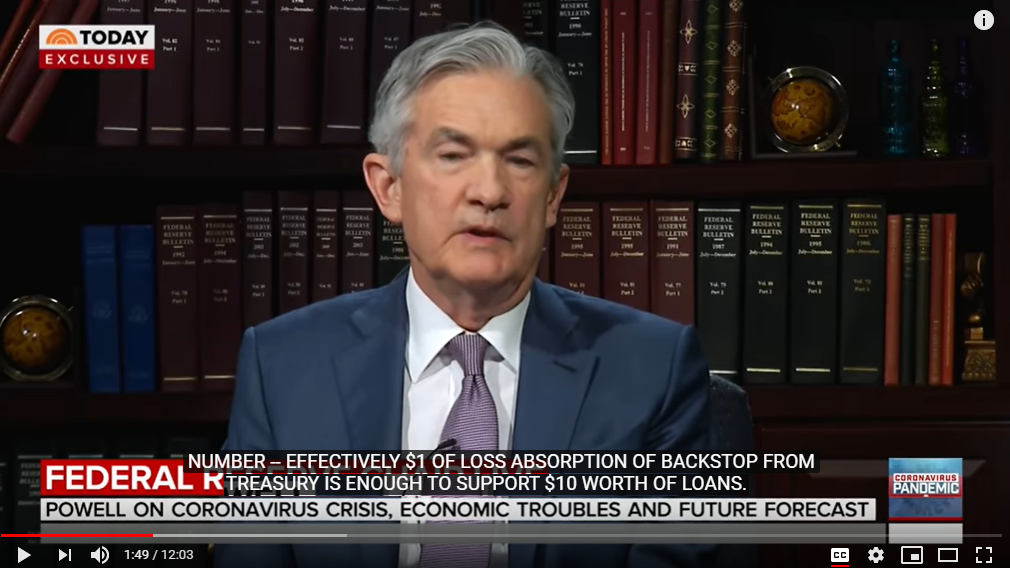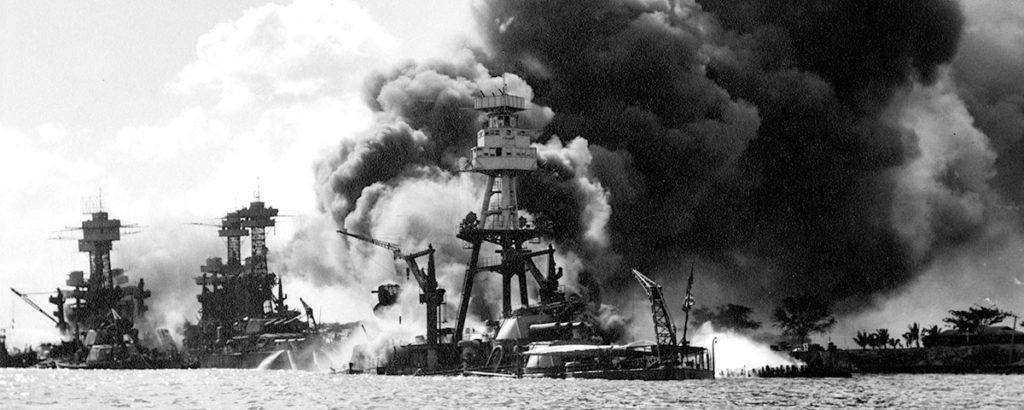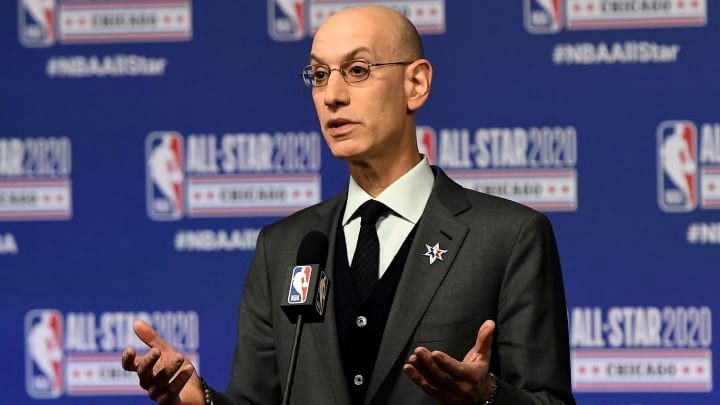Reflections on a Strange Month

This has been one of the strangest months we’ll probably ever endure in the Western world, which means that even my typical writing structure will be out of whack. It’s as if the planets aligned and a laser beam shot from the Sun through all of the planets, paralyzing civilization as we know it throughout March, and probably April, maybe even May. Every year as we approach this typically pleasant time, and as the days begin to get longer, for at least a split second I recall Caesar and the Ides of March. It’s a warning call that we often ignore. Merely a story that Shakespeare spun up backed by no rationale. Folklore and superstition. And yet here we are. Victims, like Caesar, Czechoslovakia, Czar Nicholas II, and Ed Sullivan, to the very Ides of March.
Steering away from the obvious, here are my ten musings on what we just witnessed.
1. Deurbanization. I don’t have much to offer here beyond precisely every word of the below two tweets. Whoever @agirlnamedella is, she nails it.
I really think that after the peak of COVID-19 in the US, we’re going to see a huge movement of people from big cities to more rural areas. This outbreak is showing us in real time what happens when there’s population density like in NYC and something’s spreading. Combine that w/
— Ella Howard (@agirlnamedella) March 28, 2020
The emotional impact of feeling an urge to be able to see/be with your family in times of crisis, I think it’s going to change the housing market in smaller towns completely and I think it’s going to move us closer back towards the nuclear family model again.
— Ella Howard (@agirlnamedella) March 28, 2020
2. Shattered routines. Work out, work, ho
me, sleep. Or home, work, sleep, work out. Or sleep at work. Work out at home. Or work at home. Or sleep while working out. Eat?

Everything has collapsed into a gravitational singularity. Our machine-like patterns have been shattered. In the best case, this has allowed us to take a step back from the usual cycle and appreciate what is important in life. In the worst case, loss of structure and added family strain has created a new source of stress.
3. Hysteria vs. complacency. Social distancing vs. nonchalance. Prepping vs. cruising. The tension between the extremes has broken our frameworks and the fuzzy information flow has created a lot of confusion. I can’t recall confusion blanketing our society for this long. On 9/11, already on the day of the tragedy our intelligence was able to pin the attacks onto two individuals: UML and SH. On 9/12 society was in mourning. On 9/14 Congress unanimously passed the legal basis for war (98 Ayes, 0 Nays, 2 Non-Votes in the Senate and 420 Ayes, 1 Nay, and 10 Non-Votes in House). Within a month the US invaded Afghanistan (it’s not to say these were necessarily the right actions but it was the unanimity of the public servants that stood out). On 9/29, Saturday Night Live was back on-air. And within weeks life began to normalize.
But what we are experiencing now is a humbling experience for a society like ours. This is what it must have felt like for the innocent in the Middle East ever since precisely 9/11. Or any third world country going through despair. Not knowing what tomorrow would look like or when the gloom would end. It’s just surprising that this gloom is happening in a society that thought it had everything figured out.
4. Trillions of dollars. If there is one thing that we did have a playbook for, it’s a financial crisis. Post-mortem after post-mortem, market participants, journalists and armchair analysts drilled the story of the GFC into us. And slowly but surely we became so familiar with it that it almost sounded like the Pledge of Allegiance: “Subprime mortgage debt. Collateralized securities. One bubble. With misery and bankruptcies for all.” Fast forward to today and the Fed was ready to go. $1.5tn worth of liquidity announced with a blink of an eye. $4tn announced with a blink of another. It seemed like it was the only institution that was functioning. And then came another $2.2tn from Congress. For a total of $7.7tn of stimulus. But wait. M3 money supply, a somewhat antiquated but still appreciated measure of the broadest amount of money that is out there, would eventually double, and would amount to nearly $15tn of new money using the present multiple of approximately 4.0. So $15tn worth of new wads of cash, split between Wall Street and Main Street, in order to put a floor on free falling markets. And those were just the actions taken in the US.

5. The WHO? I will save the band another sorry innuendo. The tweet below is as guilty as any leader or leading organization for providing misguided information. The only difference is that they are the preeminent organization on international public health. More than two months on, there is little apparent leadership from the agency. In both cases — by the time they declared a public health emergency and by the time they declared a global pandemic — it was too little too late.
Preliminary investigations conducted by the Chinese authorities have found no clear evidence of human-to-human transmission of the novel #coronavirus (2019-nCoV) identified in #Wuhan, #China🇨🇳. pic.twitter.com/Fnl5P877VG
— World Health Organization (WHO) (@WHO) January 14, 2020
WHO:
— James Todaro, MD (@JamesTodaroMD) March 28, 2020
Jan 14: “No clear evidence of human-to-human transmission of coronavirus"
Feb 7: "Masks don't necessarily protect you"
Feb 17: "...extremely cautious using term pandemic"
Mar 23: Treating #COVID19 w/ #Hydroxychloroquine could cause a drug shortage
What's the theme here?
6. Gangman Style. No country has done a better job in containing a crisis than South Korea. For a period in time in February it looked like South Korea reached a point of no return, and yet, fast and decisive measures have all but paid off as the COVID hurricane has moved to other shores.
More updated chart. We need the @CDCgov to recommend people always wear homemade masks when out!@naval @schrockn https://t.co/u553dvGPMU pic.twitter.com/AAiBJSTsjt
— Jo (@jperla) March 22, 2020
Whatever the reason behind their “flattening of the curve,” whether it was increased testing or Asia’s “mask culture,” South Korea should be commended for its success. And this comes in the same year when the country’s heralded Parasite became the first non-English film to win Best Picture. How long ago that seems now.
7. The FDA-CDC sh*t show. I urge you to a) listen to Balaji Srinivasan’s clip on the The Knowledge Project regarding the shambolic coordination efforts of the FDA and b) skim this New York Times article. Srinivasan, who was sounding the alarms since early January about the coronavirus had this to say.
“A beauracratic process inhibited the United States from testing for a critical 30 day-ish period from January to February and gave people a false sense of security that there weren’t that many coronavirus cases in the US.”

“Once Health and Human Services declared a public health emergency over this virus, the FDA actually gained a new power — the power to grant so-called emergency use authorizations (EUAs). They really said that, you know, this is an emergency, and so an emergency is ‘high risk’ which means you need a lot more review for the tests and that means the FDA needs to slow things down. And so it was the denial of these emergency use authorizations over the critical month of February that kind of forced all labs to have their hands tied. Basically all of our planes were sitting on the ground while we got ‘Pearl Harbored’ by the virus. Why did the FDA do this? Because they saw an opportunity to win ground in a bureaucratic turf war. To never let a crisis go to waste and to use the EUA to force lab directors to send tests through them. The FDA has a deep-seeded belief that they are the only good actor in medicine and that anything outside of them isn’t the highest standard. On a cultural level they basically don’t care about the cost or time they impose on others for this ostensible high standard and nor do they think that significant premarket review and bureaucracy may actually reduce quality overall due to less ability to iterate and far higher start-up costs which could lead to less competition, innovation, and substantial delays. That’s an argument that has been going back and forth for many years, but at least now the American public is seeing that in this case the cost of FDA delays and test approvals may be measured in needless hospitalization and deaths. Because under this emergency use authorization system, lab test approval was changed from the more decentralized system under CLIA to a centralized system where the FDA positioned themselves as a bottleneck for the EUA and no labs could get approval other than the CDC itself. And the CDC itself was doing 12 tests a day. And that basically meant for a country of 300 million people that did 12 tests a day — that is a centralized bottleneck.”
Incredible.
— balajis.com (@balajis) February 14, 2020
Last week I called out a journalist who I thought was writing a piece that would be a disservice to public health.
Unfortunately, my concerns proved well-founded. Recode’s virus piece ignores WHO & CDC, gets the science wrong…and focuses on handshakes!
Thread: 🧵 pic.twitter.com/fnxOmRL7j5
8. Bill Gates. On October 18, 2019, the Bill and Melinda Gates Foundation hosted a high-level pandemic exercise in New York called Event 201. The event was a “tabletop exercise” that modeled a fictional coronavirus pandemic, much like the one we are experiencing today. The event was so incredibly predictive of the current affairs, that the Johns Hopkins Center for Health Security had to issue this statement.
Gates has been raising awareness about the risks of a global pandemic for some time. His clip below from 2015 is jarring. “If anything kills over 10 million people in the next few decades, it’s likely to be a highly infectious virus rather than a war,” warned Gates. “Not missiles, but microbes.”
Finally on March 13, he left the board of Microsoft and Berkshire Hathaway in order to dedicate more time to philanthropy and global health.
9. Tech’s first crisis - 7/10. Tech 2.0 has been building up its potential energy and has been waiting for this moment. By and large, I would say the industry has stepped up to the occasion. In some ways the response has been a little underwhelming. But in other ways, the Tech industry, kind of like the Fed, is deserved of a pat on the back.
Amazon, Zoom, and Seamless, oh my! With little mobility, urban residents leveraged online shopping, telework, and online food delivery to their utmost. With server-loads tested and supply chains strained, just the quality of business models alone need to be hailed. There is no question that we would be in a far worse place without any of these services.
Big Tech. If you were looking for a joint Facebook-Google-Apple effort to trace migration patterns in real-time and machine-identify the vaccine from the virus genome, then unfortunately we’ll need to wait for the next pandemic. What COVID-19 exposed is a glaring admission that the Tech heavy hitters’ acumen lies more in making money off of our attention, and less in solving for the world’s most difficult problems. But the internet stayed up and running and our phones have kept us connected, so to completely dismiss their impact is unfair.
Biotech: For biotech, it’s too early to provide a fair assessment, but hopefully this does not become another wasted opportunity. The reality is that this is the industry that is at the heart of tackling the epidemic and if there is any hope for a way out, it’s through their work. The issue is that biotech gets frequently built up with promise but fails to rise to the occasion — at least to the lofty expectations that consumers have. If I press “Buy Now” on Amazon, then I know that the product will be delivered by tomorrow. Unfortunately, there is not yet a “Cure Now” button, nor a platform for that matter, that can do the same for our health. And asking for that, at least today, seems like a little bit too much.
10. Adam Silver and the day that sports died. One unlikely hero that came out of all this was NBA commissioner Adam Silver. Following Rudy Gobert’s positive coronavirus test, the NBA immediately halted all operations on Wednesday, March 11. What ensued the next day was phenomenal. On Thursday, March 12, the entire sporting world stopped in its tracks. All other major American sports leagues followed the NBA’s lead and then the NCAA eventually pulled the plug on its sporting crown jewel, March Madness. It was a much needed wake-up call for the US (and frankly a lot of the Western world). Only after this moment did people really begin to understand the gravity of the situation. In fact, it wasn’t til that Sunday that the CDC came out with its 50-person cap on public gatherings. So Silver definitely deserves a shout for being the first public figure to make a key call. The beauty of his decision is that by being the first to suspend operations, you then could become the first to restart. And the NBA undoubtedly will benefit as a result.

My hunch
So what does all of this mean? Outside of every civilian now being an expert epidemiologist (my self including), COVID-19 has created an opportunity of a lifetime. Of course there’s the market buying opportunity that this has created. But it also finally allowed us to close the chapter on the GFC and move onto the next crisis. A fresh paradigm shift. No doubt will new success stories come out of this. No doubt today’s policy responses will set the zeitgeist for future decades. For anyone that wanted a shake of the snow globe, you got it. Now it’s up to you to figure out how to navigate the new world.

